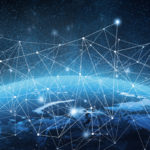Soft skills and digital transformation
Around the 1960s the U.S. Army coined the name soft skills to refer to abilities other than those involved in working with machines. Military instructors realized the need for other abilities in the profesional development of its technicians and engineers.

A decade later, the labor market started to think about soft skills. The British psychologist Nicholas Humphrey in 1976 pointed out a type of social abilities that went beyond those of measurable intelligence and emotional education. Other authors such as Drucker and Mintzberg also referred to new abilities in business management. Perhaps these movements came in response to the excessive professional technification that emerged in the second industrial revolution.
One of the problems with this type of skills is that they are difficult to categorize. Some of them depend on the needs of the market, while others are the product of common sense. The soft skills that are normally cited include leadership, flexibility, communication, responsibility, courtesy and morality. They cannot be measured in the same way as aptitudes involved in processes and to understand them you have to look at history.
Plato tells us in his Apology that Aristoteles was condemned for disconcerting young people with ethical questions, some of which focused on the concept of good. That posed a danger for some Athenians. If citizens spent time thinking about such abstract matters, it would be at the cost of technical skills. What was important was the survival of the polis. They thought Socrates’ concepts were ill-advised as they delved in internal, meditative aptitudes that were neither pressing nor basic.
Later ethics would develop a theory on virtues that would be embodied in Western morality. Throughout history different movements and levels of moral fiber emerged. At the start of the modern age, Kant proposed values based on universal rationality. What is interesting is that thinking about soft skills emerged from a different point of view: that of functional management.

Such qualities and others are needed to manage projects in digital society.
These skills have to do with traditional ethics adapted to the current world. Many are nurtured within the family and with friends as part of social life. Authors in the field of organizational psychology such as Adam Grant also speak of creativity and the paradoxes of generosity.
Such qualities and others are needed to manage projects in digital society. The implied paradox in mentioning these skills is that professionals who lack them may fall short in competitiveness. Curiously —and here lies a key factor— what is required to develop soft skills is not to think in such a pragmatic way.
We join social media because we like to communicate not only to develop a network of contacts. We give our opinions on things we have bought because advice is important, not necessarily because of what we get out of it. We manage out time not only from the point of view of efficiency but also to better enjoy our free moments. Somehow soft skills have to do with a commodity other than functionality and curiously enough can enhance it.
Another key aspect is that flexible habits are acquired through practice. The Internet is an excellent are in which to try out new aptitudes such as good taste, tolerance, solidarity, privacy, all of which can be exercised in social networks. Others take the form of challenges that we need to embrace and cultivate and that also represents another ability: critical capacity.
In a digital world soft skills need to become increasingly human. That is what sets up apart from artificial intelligence (AI) and what allows us to develop it exercising judgment. They allow us to manage and organize process such as blockchain from an ethical point of view. Perhaps some of these abilities are well embedded in the collaborative networks and are ingrained in millennials. The ability to synthesize, minimalism, free association, meeting management, job-switching and IT self-sufficiency. All of which points to the ability to take on new activities and to be constantly learning.
The insight of the U.S. military instructors also points to deficiencies in school and university training. High education in some cases touches on these values but does go into them in depth. For example, we talk about leadership without resort to social reflection on what this means. Critical reading courses are offered without understanding where analytical thinking comes from. Some schools offer competitive models that ignore the value of social responsibility and seldom do value
scales and throughts on the digital future come into the picture.
Of course soft skills are not the imperatives Kant talks about in his Critique of Judgment but it is worthwhile finding out what they have in common. These are different and necessary skills in social and business development. According to McKinsey Global Institute, by 2030 robots may have taken over 800 million jobs. Flexible skills can help us manage this change.
It is not enough to have read Nicomachean Ethics or Oliver Twist to have a sense of solidarity. Or read Henry Jenkins to develop participatory skills nor attending classes on how to be a leader in order to be one. All of this, coupled with practising these skills will allow us to build them up. In this sense perhaps the big school i sour family and friends.